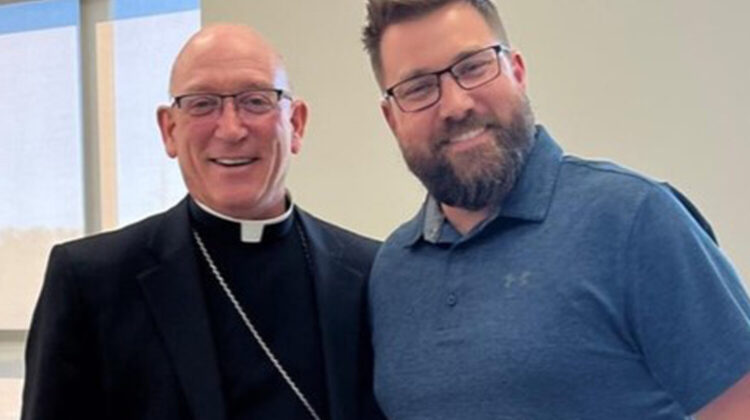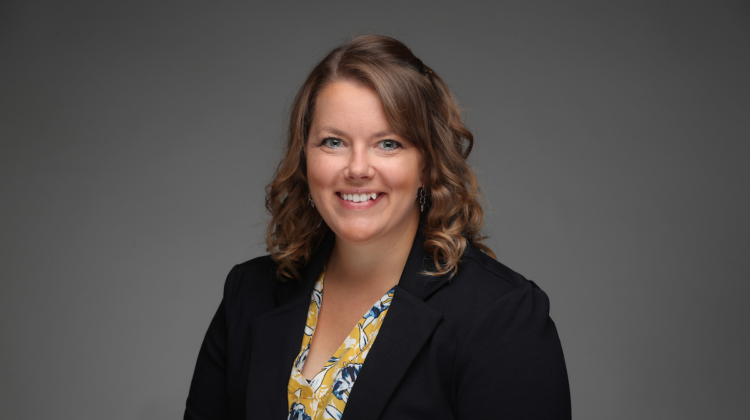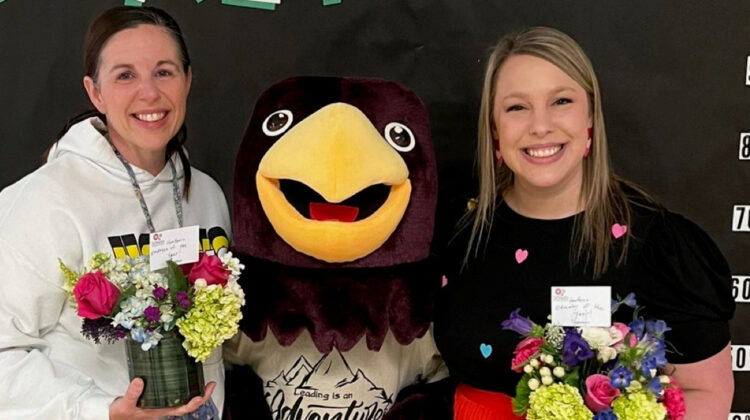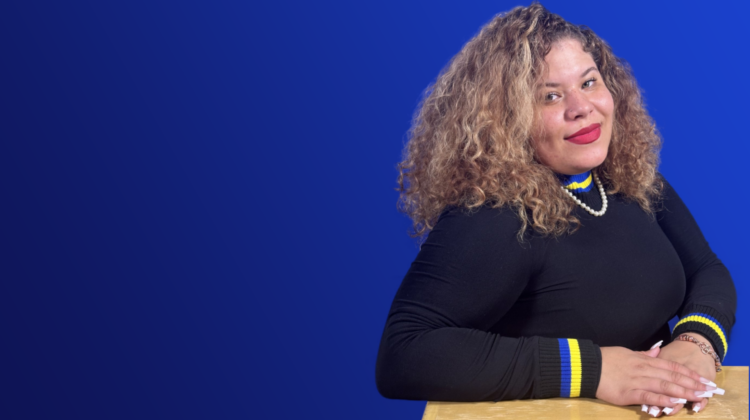For his leadership, professional contributions and school engagement, Missouri State University alumnus Cameron Branson has received the Diocese of Springfield-Cape Girardeau’s 2023 Distinguished Teacher of the Year award.
The Jefferson City native has taught at St. Agnes Cathedral School in Springfield for 13 years. He is one of three teachers at St. Agnes to have received this prestigious award.
“To be held in in the same regard as those excellent teachers caught me by surprise. It really means a lot to me,” Branson said.
Finding his footing at Missouri State
Branson first attended Missouri State in 2006. He had not decided on a major through his sophomore year. A defining moment for him was an experience through his fraternity organization, Sigma Phi Epsilon.
“We had some younger guys not making their grades, and I saw most of them were not doing well in math,” Branson said.
Though he had never previously considered math his calling, Branson started helping these younger students by tutoring them twice a week. He quickly found teaching an enjoyable experience.
“It just kind of fell into my lap. I didn’t declare a major until literally the cutoff date. It was a divine intervention,” Branson said.
He declared a middle school education major, with an emphasis on math and science. Later down the road, he returned to MSU in 2016 to complete a master’s degree in educational technology.
Branson initially struggled in his undergraduate program, but many of his professors “saw the spark” in him and pushed him to achieve success.
Faculty emeritus Dr. Larry Campbell told him, “You have so much potential, and you’re not reaching the levels I know you can.”
This interaction impacted Branson. He has used those same words throughout his teaching career to encourage students who were struggling like he once did.
Branson recalls his professors taking a personal interest in all of their students, even in large lecture classes. He has taken on this approach as a teacher.
“I think that my professors leading by example helped me build those connections with the kids in my classes,” Branson said.
At MSU, Branson participated in several student organizations. As part of Sigma Phi Epsilon, he was a member of the Greek Week committee and the Interfraternal Council.
Branson was also a member of the Beartones, an all-male acapella group. In 2009, they placed third in the world at the International Championship of Collegiate Acapella in New York City. Branson described it as his most rewarding collegiate experience.
Commitment to teaching
Branson started teaching at St. Agnes when he was 23 years old. Most of his co–workers had been teaching for over 20 years, so he found himself surrounded by experienced professionals he could look up to.
One of Branson’s goals is to be a role model for his students. When he was in school, he only had three male teachers before high school.
“I think there needs to be more male teachers for elementary and middle school students. It’s important for students to see a positive male role model in their lives from preschool to eighth grade,” Branson said.
He helps keep his students engaged with learning outside of the classroom by sponsoring extracurricular activities. He helped start St. Agnes’ FIRST Lego League Robotics team. Through this activity, students learn principles of engineering and robotics. The team has found great success.
“Out of the seven or eight years we’ve been doing this, we’ve sent five teams to state,” Branson said.
He is also the sponsor for the school’s MATHCOUNTS and Math Olympiad teams. Throughout the years, many of the teams have competed in state competitions.
“We had a team that competed against Central Scholars (for highly gifted students) and finished in second place. To be up there with Central Scholars in anything is such an honor,” Branson said.
He has also sponsored other clubs that students showed interest in, such as a Dungeons and Dragons club.
“Anything the kids want to try and do, I’ll try to facilitate it for a couple years to see if it’s something that will stick,” Branson said.
According to Branson, his favorite part about teaching is spontaneity.
“In most jobs, you walk in at nine and leave at five. If your day deviates, it’s just by a little bit,” Branson said. “I have a plan every single day when I walk into the class, but who knows how that day is going to go?”
Branson likes the consistency of knowing each day that he’s going to teach, but not what unexpected events will occur.
He loves it when the kindergarten students walk by his classroom with bright and shining faces. He also enjoys unexpected visits from former students who are now in high school, who drop by to tell him the impact he had on them.
“It makes life fresh every single day,” Branson said.
Sharing some advice
Branson encourages those interested in an education career to stick with it despite the adversities.
“Education is in a really weird spot right now,” Branson said. “I’ve only been a teacher 13 years, but I’ve seen such drastic ebbs and flows.”
He said he’s spoken to educators who have been teaching for more than 40 years, and they believe the biggest changes in education have happened in the past few years.
“Education needs strong people,” Branson said. “If you know this is for you, please don’t give up after a set of rough days. Teaching is hard, but I wouldn’t want to do anything else.”
“It’s difficult, and it’s getting harder. But the kids need us.”





